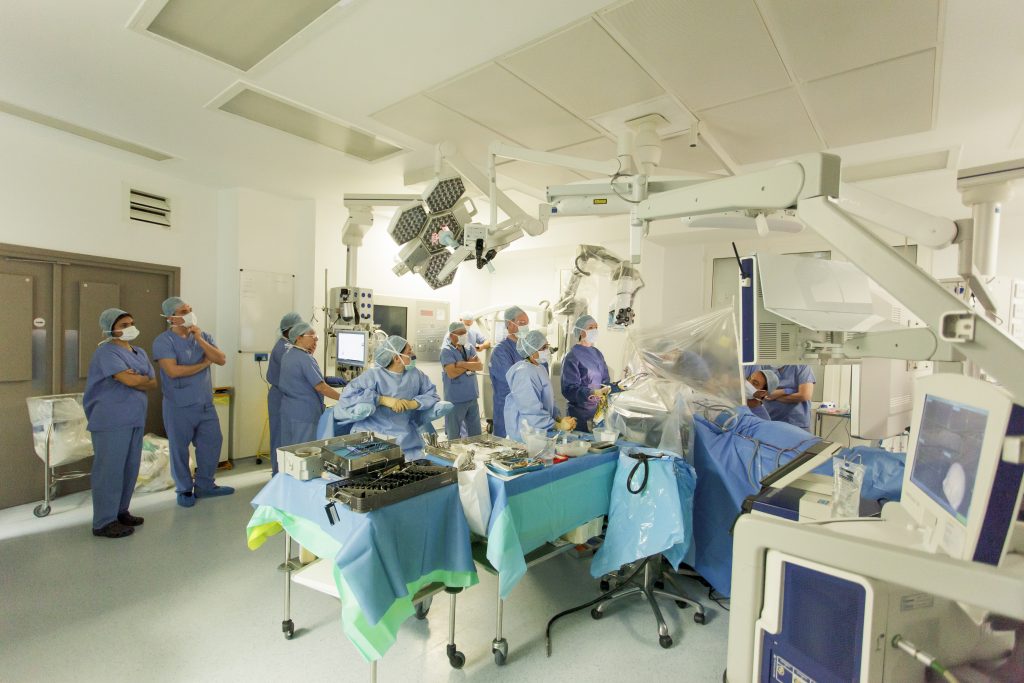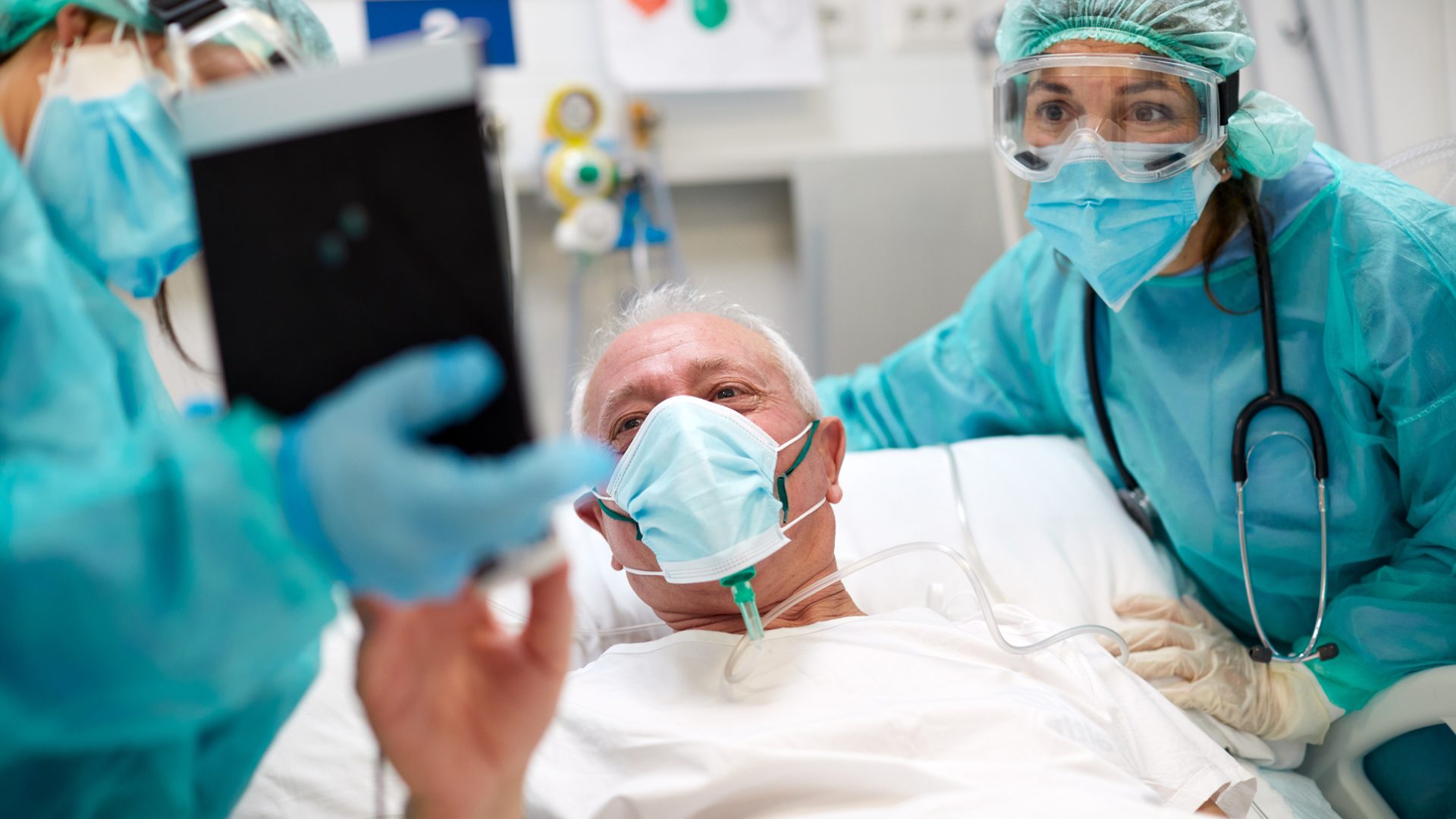1.5 million operations cancelled
More than 1.5 million operations were cancelled or postponed at hospitals across England and Wales during 2020, according to the first study measuring the impact of Covid-19 on NHS surgery.
The study, funded by us as part of our £7m investment in Covid-19 support, suggests this shortfall will increase to 2.4 million cancelled operations by the end of 2021, with millions more patients likely to feel the impact for years to come.
The study has been published in the British Journal of Anaesthesia, and is the first to provide detail on how many NHS procedures did not take place during the pandemic. The lowest number was recorded in April 2020 following the first national lockdown, when the number decreased by 73%.

Operating theatre
25 times more likely to die
The researchers also revealed that patients having surgery who caught Covid-19 while in hospital were 25 times more likely to die.
Dr Tom Abbott, one of the study authors, from Queen Mary University of London said:
“Our study reveals the true impact of the Covid-19 pandemic on surgical care in England and Wales, including both emergency and elective care. The long-term consequence of the disruption is unclear, but we anticipate that for many patients their quality of life will be severely affected.
“The backlog of surgery is likely to take many years to clear, particularly as the speed with which surgical treatments can be delivered is now slowed by infection control procedures. As highlighted by our research, the high mortality amongst patients who acquire Covid-19 at the time of their surgery, indicates that the current procedures and precautions must remain in place to safeguard our patients.”
This research was published by the British Journal of Anaesthesia and covered by BBC News


